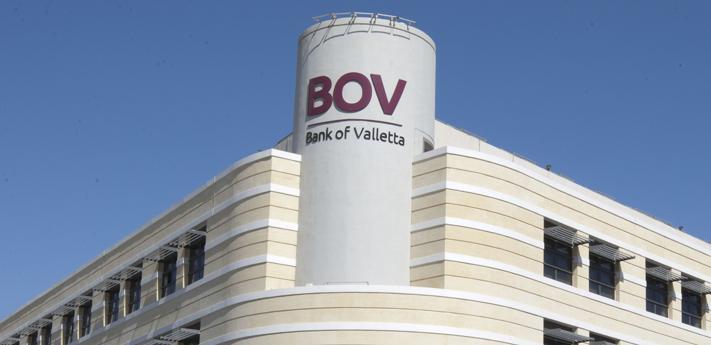According to the Head of the Chief Executive Officer’s Office at Bank of Valletta, “It is BOV’s management's prerogative to grant to its executives conditions of work in excess of what is stated in a collective agreement.”
In a reaction sent 24 hours following the publication of a detailed story in The Malta Independent on Sunday, in which it was revealed that Dr Michael Falzon was not eligible for any BOV early retirement scheme when he was appointed Parliamentary Secretary in April 2014, the bank said it felt that, “The reporting featuring in the article was selective, biased and often based on wrong assumptions.”
Going back to the original story, this newsroom is struggling to identify which part of the story is “based on wrong assumptions”- something the bank still hasn’t explained in its reply.
“The working conditions of employees in the executive grades are not governed by the collective agreement,” says the Head of the CEO’s Office in his reply.
One would subscribe to such an argument had the insiders who leaked the information to this newsroom not provided us with an “update on early retirement schemes”, which was presented to the bank’s board of directors by its chairman, John Cassar White.
In his update, not only doesn’t the Chairman say that “working conditions of employees in the executive grades are not governed by the collective agreement,” but he goes to lengths to explain how the retirement schemes at BOV have worked over the past years since 2005. Had Dr Falzon not fallen within the ‘collective agreement’, one would assume that the bank’s chairman wouldn’t feel the need to explain to the board that 117 bank employees benefited from early retirement agreements since 2010.

In its reply to last Sunday’s story, BOV makes another sweeping statement, which is hard to fathom, when it said, “Moreover the current collective agreement expired in December 2013.”
One would understand from this that the since the collective agreement has expired, benefits and obligations under that agreement have not been rolled over until a new agreement is reached. It is, however, common knowledge that whenever such an agreement expires, it continues to stand until the next agreement is signed between the parties.
In its reply the bank also states that, “It is also management's prerogative to grant to its executives conditions of work in excess of what is stated in a collective agreement. In the past a number of employees were also granted early retirement even if 'they had not reached 50 by 2005' because of special circumstances.”
Interestingly this is a new position adopted by BOV regarding this case. In previous press releases, and in the chairman’s presentation to the board, the impression was given that Dr Falzon qualified for the early retirement scheme. Now the bank is saying that others were granted early retirement benefits irrespective of the clause that precludes them from attaining so within the collective agreement.
“One has to assume that these decisions were taken at the time 'in the best interest of the service',” says the Head of the CEO’s Office.

The bank confirmed in its reply that, “Approval of early retirement applications has always been delegated by the Board to the Remuneration Committee. This is common practice in most companies. At BOV early retirement applications are not normally referred to the Board, but Board members may attend Remuneration Committee meetings if they wish to do so, and they have access to Committee minutes.”
But to add insult to injury, BOV states the following: “The present Board is trying to structure the early retirement scheme in a more logical way, while allowing some flexibility to cater for evolving realities that merit special consideration.”
But the logical question that follows here is: Why would the present Board structure the scheme in a more logical way and allow flexibility if it just stated that “it is management's prerogative to grant to its executives conditions of work in excess of what is stated in a collective agreement”?
The bank also said that, “In the case of Dr Michael Falzon, the Remuneration Committee wanted to avoid the risk of a bank employee serving in the Cabinet finding himself in a possible conflict of interest when confronting an issue involving one of the bank's clients in his official government role. Only by severing the employment relationship between the employee and the bank can this be achieved effectively.”
While, under different circumstances, one could find the above statement to be somewhat plausible, it does not befit an organisation of BOV’s repute. That is because Dr Falzon was given the opportunity to return to work for the bank should he lose his political portfolio, thus, and using the bank’s yardstick, any possible conflict of interest is still very much clear and present.
In fact, the bank goes on to explain that, “Had we resorted to the secondment solution, as some had suggested, Dr Falzon would still have had the right to return to the Bank's employment. So the Remuneration Committee came up with a hybrid solution to resolve this unique case. It needs hardly be stressed that this is the first time that a BOV employee has been appointed to a Cabinet post. It should also be noted that Dr Falzon is bound to repay his termination benefit on a pro rata basis should he return to the Bank's service.”